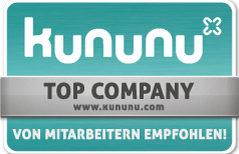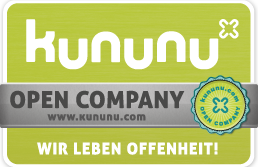Achieve success despite crises – invest, digitise, communicate
How can we deal with the shortage of skilled workers?
With around 23 percent of responses, the audience at our 16th OpenPromos User Forum views demographic change and the associated shortage of skilled workers as the greatest challenge, ahead of the trend in energy prices (22 percent) and the climate crisis (18 percent). This is hardly surprising, really. After all, it’s probably the topic that most affects employees in their everyday working environment, when too much work falls to too few people. Or when projects cannot be implemented, or only with delays, because there simply isn’t anyone available to run them. And what we’re currently seeing is just the tip of the iceberg. In just a few years, the “baby boomers” born in the 1960s will all have retired, as the development of the German population pyramid in Figure 2 shows. Our panel discussion on this topic considered solutions to the problem. Apart from offering better wages and a four-day work week as incentives, the most prominent idea was digital process optimisation. Personalised work interfaces, such as that offered by SAP Fiori®, or the personalised work basket from easysquare workflow not only allow new employees to get acquainted with the system faster but also contribute to a reduced daily workload. In the same way, all solutions from the area of process optimisation and automation offer potential to release valuable experts who can then work productively in another area.

Figure 1: 23 percent of respondents view demographic change and/or the shortage of skilled workers as the greatest current challenge. (n=104)
 Figure 1: 23 percent of respondents view demographic change and/or the shortage of skilled workers as the greatest current challenge. (n=104) |

Figure 2: Even now, many baby boomers are approaching retirement age, which is exacerbating the skilled-worker shortage.
 Figure 2: Even now, many baby boomers are approaching retirement age, which is exacerbating the skilled-worker shortage. |
Worried tenants
Rising inflation, increasing rents, energy prices – these are all topics that our tenants are currently facing. Uncertainty is high, while the buffer in the bank account at the end of each month gets smaller. German housing companies are feeling this, too. 35 percent of respondents among visitors to the OPUF stated that they are seeing increasing service requests from their tenants due to anxiety and financial difficulties. The industry is by no means ignoring this fact. In addition to targeted training for service centre employees, according to 38 percent of respondents, tenants are provided with additional information or referred to special advisory services (21 percent). Companies that use the tenant app in particular can implement these and similar communicative measures without much additional effort. The app allows information to be dispersed at short notice. Equally, tenants can place enquiries with great ease using the tenant app.

Figure 3: 35 percent of respondents have noticed uncertainty among tenants. (n=34)
 Figure 3: 35 percent of respondents have noticed uncertainty among tenants. (n=34) |

Figure 4: The surveyed participants' companies respond conscientiously to tenants’ fears. (n=56)
 Figure 4: The surveyed participants' companies respond conscientiously to tenants’ fears. (n=56) |
Digitisation for success despite crises
In addition to focusing on the core business and optimising costs, participants in our panel discussion viewed digitisation as one of the most important measures during a crisis. Our audience also stated that they would be most likely to invest in digitisation projects. with 30 percent of votes. As a consulting company, we know that even during the coronavirus pandemic – and because of it – many companies decided on a strategy of increased digitisation. The housing and real estate industry will have to take this route in the future, too. It’s the only way to ensure that processes remain flexible and efficient, not only making companies robust in the face of crises that are occurring at increasingly short intervals, but also creating genuine competitive advantages.

Figure 5: The respondents viewed an investment in digitisation as the most obvious solution during a crisis. (n=103)
 Figure 5: The respondents viewed an investment in digitisation as the most obvious solution during a crisis. (n=103) |
Further information on the 16th OpenPromos User Forum on demand:

